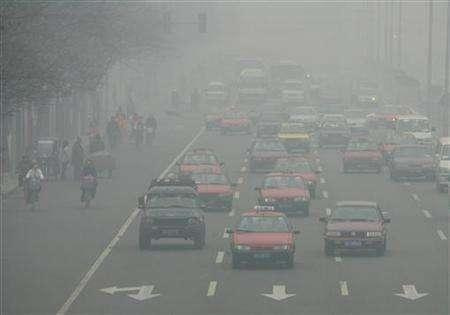A way to lower pollution that would work
How do we lower pollution? Building solar, wind, nuclear, or even fusion doesn’t necessarily lower pollution. Humans faced with new energy sources tend to use the old ones and the new ones. We aren’t slowing burning fossil fuels anywhere near the pace what we could.
I don’t pretend the following solution works politically, but I present it as a start, since it reveals what would work and might generate ideas. Actually, it could work in other countries than the United States. I’d like to help the U.S. reach a place where it would work here. I’ll describe the solution, then why it works where others don’t.

The Ten-Year Solution
Take the amount of fossil fuel energy a nation consumes each year. Call that amount ten units. Mandate that the following year, the nation would produce nine units, the next year eight, and so on until it reached zero in ten years.
Since we’re just imagining to generate ideas. imagine the nation implements it voluntarily. The first year wouldn’t be that hard. Some people don’t consume much so can’t decrease much, but they don’t pollute much either, so if they don’t drop, it’s not much of a problem. We’d have to make sure hospitals, fire houses, subway systems, and other necessary sources worked, but mostly dropping ten percent in a nation that wastes so much doesn’t require anyone tighten their belts.
I predict that problems we now study for decades, if we faced them, we’d solve in hours, sometimes minutes. Problems that would take longer than a year to solve we could start on now, but many of those problems’ severity and challenge in solving would decrease as we solved other, easier problems.
The next year the nation would drop to eight units. Again, we waste so much, a few major polluters dropping a little would drop enough. We’d solve the problems that arose as we faced them.
Over the next few years, the nation would have to start working, but with several huge advantages. It wouldn’t have to solve all possible theoretical problems. It wouldn’t have to solve them in all possible ways. It would feel motivation to solve them now, not theoretically but practically. The people who would feel the problem act on it, not economists and academics.
Why Our Current Strategy Fails
The U.S. current solution for lowering pollution (to the extent it has one) tries to solve first, then act. The solution above acts first, then solves the actual problems it faces, not theoretical or abstract ones. Actual problems are easier to solve and when solved, we know the solutions work because we see them. Economists’ and academics’ abstract solutions may work in practice but we don’t know until we try them. Without facing the problems, we can’t try them.
Economists and academics love to analyze and plan. Give them a problem and they’ll analyze and plan about it forever. Stick a nation into an actual problem, not a textbook one, and it will solve the problems it faces. We could imagine infinite problems with infinite variations that might happen. People who analyze and plan but don’t solve and implement would love that situation. They’d have job security for work they love for the rest of their lives. We just wouldn’t see our problems solved.
You can tell they don’t solve problems well by seeing that universities haven’t reduced polluting much.
What About Years 8, 9, and 10?
By year 8, I figure we’d start facing meaningful challenges. Before then, we’d mostly face just low-hanging fruit. Now we’d have to start changing lifestyles. But, unlike now, we wouldn’t be changing from insanely wasteful by complacent people. We’d be living in a culture of people changing and solving.
I expect year 8 would pose us some problems we may not be able to solve in a year, but by this point we’ve reduced eighty percent from the start because we’re actually solving problems, not studying them. If in years 9 and 10 we can’t reduce a full ninety or hundred percent, we got close.
Still, at those levels, most people aren’t depending on things that pollute so much. People for hundreds of thousands of years lived without polluting. We can too.
Caveat Reminder
To remind you, I know the solution isn’t easily implementable. Still, I think it suggests elements that could work but that people discount or can’t imagine, like that everyone can help solve problems when they face them, not abstractly imagine them.
Read my weekly newsletter

On initiative, leadership, the environment, and burpees